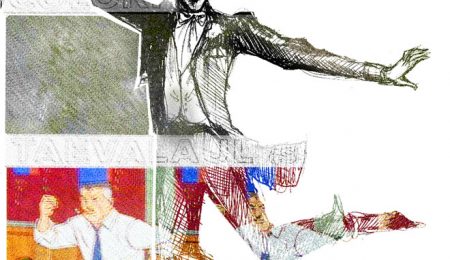Student’s U-Pass concern finally resolved, SFUO issues refund
Jane Lytvynenko | Fulcrum Staff
Five months after submitting a request to refund her U-Pass fee, Julie Corrigan, a PhD student at the University of Ottawa, got her cheque in the mail. Corrigan, who went abroad to do research, exchanged 33 emails and many phone calls with the university before getting her $360 back.
On Sept. 4, 2012, Corrigan submitted initial paperwork to get her U-Pass fee refunded. She had been accepted to do research at the University of Connecticut, which houses a digital literacies lab—Corrigan’s area of expertise.
After resubmitting an application about a month later because of a lack of response, she heard back from Taiva Tegler, external commissioner at the Graduate Students’ Association (GSAÉD).
“So I get a response from Taiva and she said it will be processed within a few weeks. What a joke,” said Corrigan. “It wasn’t her fault, it was just her understanding, but what a joke because that absolutely did not happen.”
After her money was still not refunded, Corrigan once again contacted GSAÉD. She was directed to the Student Federation of the University of Ottawa (SFUO). On Oct. 10 and then on Oct. 25, she wrote to u-pass@sfuo.ca, and received a response from Executive Coordinator Amy Hammett on Oct. 30.
“I’d first like to apologize for the delay in receiving a response on this issue, as you can imagine the number of emails we receive from the almost 30,000 students using the U-Pass program can be quite high at times,” wrote Hammett in the email.
Corrigan was informed that her case was being reviewed, the exemption request had been approved, and her file was being tracked down in order to get her money to her as quickly as possible
Nearly a month later, on Nov. 24, Corrigan still had not heard back.
“At one point I called the GSAÉD office and they said, ‘We’ve been hearing a lot of complaints about this,’” she said. “In fact, some members of GSAÉD weren’t able to register for courses because their accounts were considered delinquent.”
After being directed back to the SFUO, Corrigan decided to contact the ombudsperson for the university. She copied Ethan Plato, SFUO president, on the emails and only then was the matter resolved.
“It took five months but I did finally get the money back,” said Corrigan. “But I’m just frustrated by the whole process—$360 is a lot of money for a student and having to wait five months for it is wrong.”
“I’m away from home … I was working for free,” she added. “I had no money so $360 is significant.”
Plato said Corrigan’s case was unique, adding that the SFUO was dealing with more exceptions than expected during the fall semester when about 27,000 U-Passes were handed out.
“This case just fell through the cracks,” said Plato. “She followed up a couple of times and that’s why I was made aware of it and resolved it within 24 hours of being made aware of it. “
Plato said he is working with the university to create strategies to prevent this type of occurrence in the future and to make sure next year’s exemption process runs as smoothly as possible.
Although no concrete strategy for next year has been created yet, Plato hopes to find one that will improve the program.
“We’re looking at a way to streamline that and we’re always improving our service delivery. This is the first year we’re doing it under contract, which is a whole new set of rules,” he said.
“It’s all done by paper right now—or you can email it in—because usually we need the physical U-Pass as well. Usually there are problems if proper proof isn’t submitted on time so we have to go back and look at these cases separately.”
Corrigan has still not received an explanation for why her refund took five months to process.
“It’s not like I was passive,” she said. “I can see a case falling through the cracks when no one’s complaining about it, but how does a case fall through the cracks when there were 33 emails and several phone calls asking for [the refund] to be processed?”





